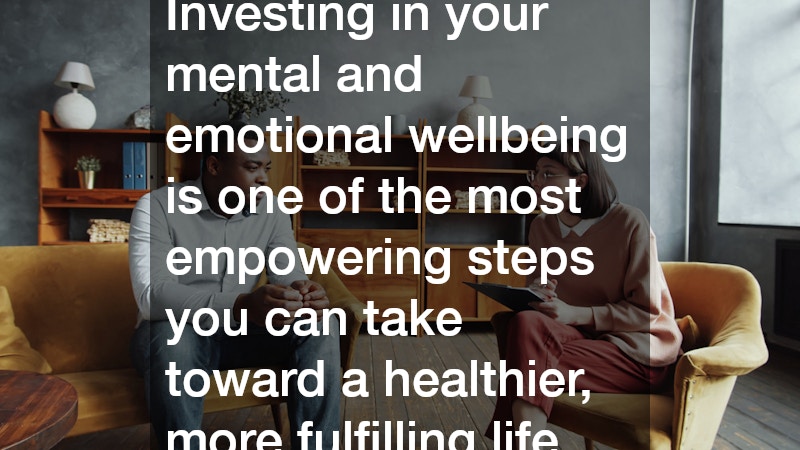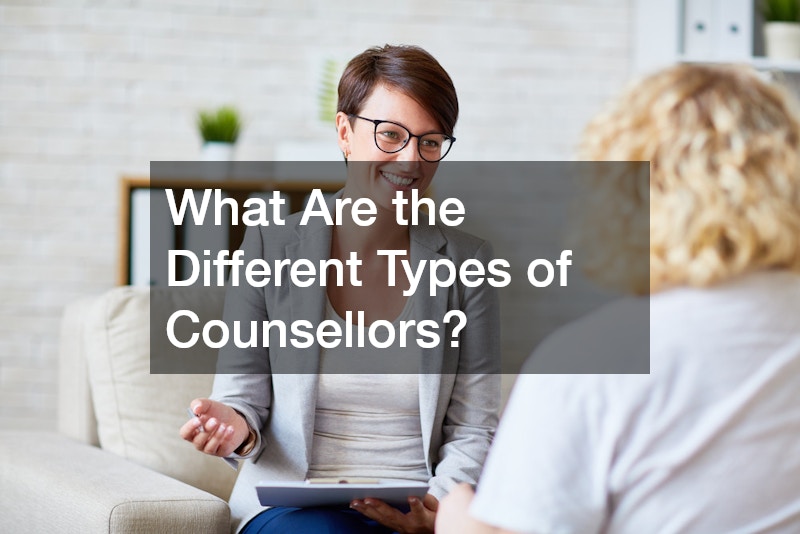In today’s fast-paced and complex world, mental and emotional wellbeing is more important than ever. Whether it’s managing stress, coping with trauma, navigating relationships, or finding clarity during life transitions, professional support can make all the difference. That’s where counsellors play a vital role. These trained professionals guide individuals through difficult times, offering support, strategies and insights to help them move forward.
However, counselling is not a one-size-fits-all field. There are many different types of counsellors, each specialising in particular areas of mental health and wellbeing. Understanding these variations can help individuals make informed decisions when seeking support.
Mental Health Counsellors
One of the most common forms of counselling involves working with individuals dealing with mental health conditions. Mental health counsellors often help clients who suffer from anxiety, depression, post-traumatic stress disorder (PTSD), and other psychological concerns. These professionals are trained to use therapeutic techniques to support clients in managing their symptoms, improving their coping mechanisms, and achieving better emotional balance. Mental health counsellors may work in private practice, public health settings, schools, or community centres. They typically collaborate with other healthcare professionals to ensure a holistic treatment plan for their clients.
Relationship & Marriage Counsellors
When conflicts or communication issues arise in intimate relationships, couples often seek the support of relationship or marriage counsellors. These professionals assist individuals, couples, and families in navigating challenges related to communication, intimacy, trust, and shared responsibilities. Relationship counselling is not limited to married couples—it can benefit anyone in a committed relationship, including de facto partners and same-sex couples. Through therapy sessions, relationship counsellors help clients understand their own behaviours and those of their partners, working to rebuild connections and resolve conflicts constructively. They often draw on psychological frameworks such as emotion-focused therapy or cognitive behavioural therapy to guide the process.
Career & Vocational Counsellors
For those experiencing job dissatisfaction, career transitions, or uncertainty about their professional path, career and vocational counsellors offer essential guidance. These counsellors help individuals explore their strengths, values, and interests, enabling them to make informed decisions about their careers. They often assist with resume building, interview preparation, and job search strategies. Some career counsellors work in educational settings, helping students choose suitable study pathways, while others assist adults facing redundancy, workplace stress, or the need for a career change. Their knowledge of labour market trends and employment resources enhances their ability to offer practical, targeted advice.
Grief & Loss Counsellors
Loss is a universal experience, but everyone processes grief in their own way. Grief and loss counsellors provide specialised support to individuals coping with the death of a loved one, miscarriage, divorce, or even the loss of employment or lifestyle. These professionals create a safe space for clients to express their emotions, explore the impact of their loss, and eventually find a way to integrate it into their lives. The counselling process can be deeply personal and varies in duration, depending on the client’s needs and circumstances. A grief counsellor’s empathy and patience are critical in supporting healing and resilience.
Addiction Counsellors
Addiction is a complex issue that can affect all aspects of a person’s life—physically, emotionally, socially and financially. Addiction counsellors specialise in helping individuals overcome dependence on substances like alcohol, drugs, or prescription medication, as well as behavioural addictions such as gambling, gaming, or eating disorders. These counsellors often work as part of multidisciplinary teams, combining psychological therapy with medical treatment plans. They aim to uncover the underlying causes of addictive behaviours, build motivation for recovery, and equip clients with strategies to maintain long-term sobriety. In many cases, addiction counsellors also support family members who are affected by a loved one’s struggle.
Youth & School Counsellors
Young people face unique challenges as they grow and develop, often requiring age-specific support. Youth and school counsellors work with children and adolescents in educational or community settings to address academic concerns, social pressures, bullying, and mental health issues. These professionals are trained to use techniques suitable for young clients, including play therapy, creative expression, and behavioural interventions. School counsellors collaborate with teachers, parents, and healthcare providers to create supportive environments that promote learning and wellbeing. Their goal is not only to address immediate concerns but also to empower young people to develop healthy emotional habits for life.
Rehabilitation & Trauma Counsellors
Individuals recovering from injury, illness, or traumatic events often face psychological as well as physical hurdles. Rehabilitation and trauma counsellors provide support during these challenging periods, helping clients process difficult emotions, build coping mechanisms, and adjust to changes in their abilities or lifestyles. Trauma counsellors, in particular, may assist clients dealing with abuse, accidents, natural disasters, or violence. These professionals are trained in trauma-informed care and understand how to avoid re-traumatising clients during therapy. Their work is critical to fostering a sense of safety, empowerment, and control in people’s lives after a traumatic experience.
Choosing the Right Counsellor
Whether you are seeking clarity in your career, healing after a loss, help with a mental health condition, or guidance through a major life transition, there is a type of counsellor well-equipped to support you. The growing diversity of the counselling profession means that no matter the challenge, expert help is within reach. Investing in your mental and emotional wellbeing is one of the most empowering steps you can take toward a healthier, more fulfilling life.




